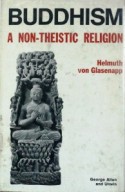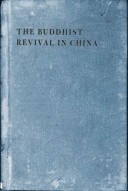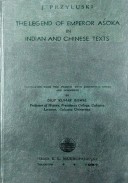MCB : 12010000005498
With a selection from Buddhist Scriptures, edited by Heinz Bechert by Helmuth Von Glasenapp
Translated from the German by Irmgard Schloegl
London George Allen And Unwin Ltd., Ruskin House Museum Street
CONTENTS
Translator’s foreword 7
Preface by Christmas Humphreys 11
Introduction 15
- The Impermanent Gods 19
- No Creator or Ruler of Worlds 35
- The Law of the World 48
- The Bringers of Enlightenment 63
- The Absolute 102
Conclusions 122
Note on the Buddhist Scriptures 127
Buddhist Scriptures 132
Selections from:
Anguttara-Nikãya 135
Dhammapada 142
Dĩgha-Nikãya 142
Jãtaka stories 150
Majjhima-Nikãya 158
Milinda-Pãnha 162
Samyutta-Nikãya 166
Udãna 173
Vinaya 174
Visuddhimagga of Buddhaghosa 174
Abhidharmakosha of Vasubandhu 176
Bodhicaryavatarã of Shãntĩdeva 177
Madhyamakakãrikã of Nagãrjuna 178
Saddharmapundarĩka 179
Reference Notes 182
Glossary 196
Index 204
PREFACE
This admirable translation by Dr Irmgard Schloegl of a work which first appeared in 1954 as Buddhismus und Gottesidee puts before English-speaking students of Buddhism its suggested place in the field of religion. Professor von Glasenapp, a scholar of international standing, having analysed his very mixed material, concludes that whether or not Buddhism is a religion depends on the definition of religion. Much turns, in such analysis, on the Buddhist school under review, and the author assumes that the Pãli Canon is nearest to the Buddha’s message to mankind. It is with this school that he is mostly concerned, and the same applies to the admirable ‘Brief Note on Buddhist Scriptures’ by M. O’C. Walshe and the ‘Selections from Buddhist Scriptures’, edited by Heinz Bechert, which together form the second half of the volume.
The paradox contained in the English title is highly topical. Western thought is rapidly abandoning God, in the sense of an Absolute Creator who is yet a personal saviour of mankind, and for the many it is becoming true to say that ‘God is dead*. But his disappearance from the held of higher thought, and from the needs of the heart, is becoming increasingly felt. In the absence of any substitute-concept of the Beyond of purely material existence the younger generation is left in a spiritual and moral chaos, without a purpose in life beyond pleasure or a guide/exemplar on a more worthy way.
Considering this vacuum, what can Buddhism offer the West which will satisfy both heart and mind, and also that faculty of intuition by which the developed mind contacts the beyond of feeling-thought?
The writer considers, the gods of Buddhism and then seeks for its concept of God. In a single chapter he clears away the former, for they too, from the highest deva to the lowest nature-spirit, are bound upon the Wheel. Turning to the God- concept, Professor von Glasenapp examines the God of Christianity and cognates ideas in other religions; but he makes it clear, with a wealth of quotation, that such a thought is anathema in the Pali Canon. His examination of anything even superficially comparable in Buddhism shows the profound distinction between a hypostatic principle, such as the Dharmakaya or Alayavijnana or mind-only, and creator of the universe; for if someone created the universe, who created him?
True, as the author admits, there are figures in the Buddhist pantheon which approach in the religious sense the status of God. Amitabha, for example, is worshipped in every sense of the term in the Pure Land schools of China and Japan, and the same applies to some extent to Vairocana in the Shingon school. But this devotion is still to a virtue, as of wisdom or compassion, and knowingly so, and never to a creator.
What then can replace the God-concept in the Western mind for those who seek an acceptable alternative? The writer corroborates the view of a handful of Western Buddhists who, forty years ago, suggested the twin doctrines of karma/rebirth. Buddha was not concerned with ultimates, such as a first cause, but he clearly maintained the existence of ‘a moral world order’ under the reign of law for which he used the term dharma. This provides the cosmic ground of unity and harmony upon which field the individual treads the middle way to enlightenment. Here is the static aspect of the Godhead, a reflection in manifestation of the ‘unborn’. The dynamic, all-embracing, infinitely adjustable law of karma, and its inevitable corollary rebirth provides, and with greater dignity, that which in theistic faiths calls for the personal attention of a Creator-God.
The author dilates upon the relative merits of the two concepts, and makes it clear why the Buddhist can politely say to his Christian brother that in Buddhism there is just no place or need for a theistic God. Nor is karma itself a god, still less God. Here is law, impersonal, utterly just which the individual may use precisely as he will. Nor is the heart left out. The twin concepts of prajna/karuna, wisdom and compassion are, as Dr Suzuki pointed out, the twin pillars on which the Mahayana rests, and neither can exist without the other.
Was not Buddha himself raised from man to superman and thence to the rank of God? Undoubtedly he reached very near it; but when to concepts such as sunyata and tathata and the like are added the Buddha-mind, is this not a reflection of the ‘unborn, unoriginated, unformed’ of which the Buddha spoke, and into awareness of which he entered by that enlightenment which earned him the title of Buddha? Such is the goal of Buddhism and of every Buddhist, and whether or not the word religion applies the purpose of endeavour is the same. Such personal awareness, such direct, immediate experience of the living fact that Nirvana is to be found within samsãra, that the Buddha-light already shines within, that the Absolute, however named and the relative, however known are one and the same and utterly indivisible—such experience is surely in the field of religious enterprise, whether or not religion is the right term to apply to the means by which this supernal end was attained?
Professor von Glasenapp deserves congratulation by fellow scholars in the field of comparative religion. His name should equally be remembered by the growing body of seekers who weary of an outworn form of God, but are looking for satisfaction for the heart and mind in that mighty field of thought and spiritual attainment known as Buddhism.
CHRISTMAS HUMPHREYS
 Facebook
Facebook
 Google
Google
 Google+
Google+










